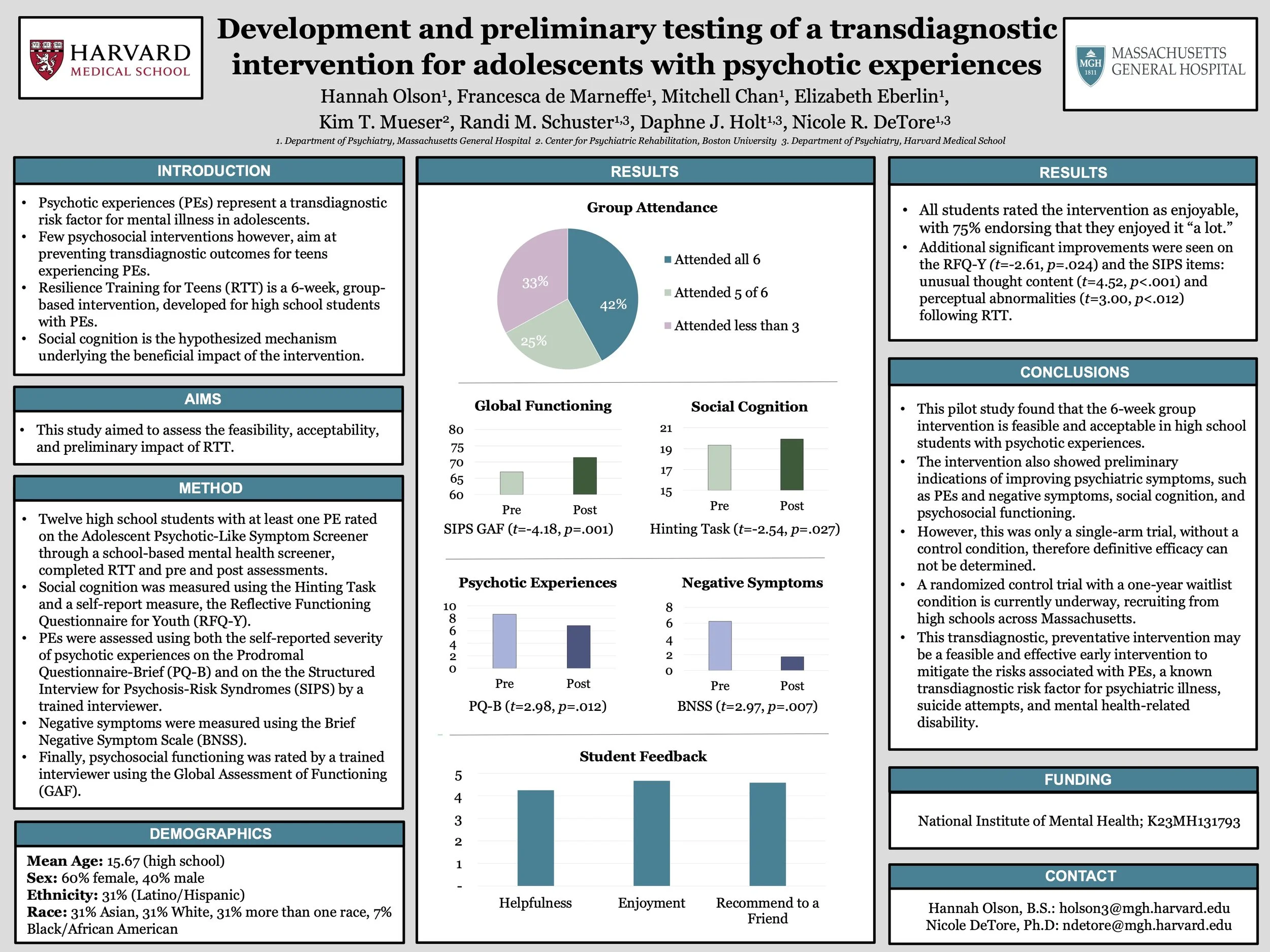Development and preliminary testing of a transdiagnostic intervention for adolescents with psychotic experiences
Hannah Olson (1), Francesca de Marneffe (1), Mitchell Chan (1), Elizabeth Eberlin (1), Kim T. Mueser (2), Randi M. Schuster (1,3), Daphne J. Holt (1,3), Nicole R. DeTore (1,3)
Institutions:
1. Department of Psychiatry, Massachusetts General Hospital
2. Center for Psychiatric Rehabilitation, Boston University
3. Department of Psychiatry, Harvard Medical School
Background: Psychotic experiences (PEs) represent a transdiagnostic risk factor for mental illness in adolescents. However, few psychosocial interventions aim at preventing transdiagnostic outcomes for teens experiencing PEs. Resilience Training for Teens (RTT) is a 6-week, group-based intervention, developed for high school students with PEs. This study aimed to assess the feasibility, acceptability, and preliminary impact of RTT.
Methods: Twelve students with at least one PE rated on the Adolescent Psychotic-Like Symptom Screener, through a school-based mental health screener, completed RTT and pre and post assessments including the Structured Interview for Psychosis-Risk Syndromes (SIPS); Global Assessment of Functioning (GAF); Brief Negative Symptom Scale (BNSS), Hinting Task, Prodromal Questionnaire-Brief (PQ-B); and the Reflective Function Questionnaire for Youth (RFQ-Y).
Results: A total of 12 adolescents, (Mage=15.67, 60% female, 31% identified as Asian, 31% as more than 1 race, 31% White, 7% Black/African American, and 31% as Latino/Hispanic) participated from three Massachusetts high schools. 72% of the students completed all six sessions and all students rated the intervention as enjoyable, with 75% endorsing that they enjoyed it “a lot.” All students also rated it as beneficial, and that they would recommend it to a friend. Significant improvements were seen on the Hinting Task (t=-2.54, p=.027), and both scales of the RFQ-Y (t=-2.62, p=.024; t=-2.48, p=.030) following RTT. PEs significantly decreased (PQ-B: t=2.99, p=.012) and SIPS items: unusual thought content (t=4.52, p<.001) and perceptual abnormalities (t=2.27, p=.043). Significant decreases in negative symptoms (BNSS: t=2.98, p=.007) and increase in GAF (t=-4.74, p<.001) were seen.
Conclusions: This study provides evidence that RTT may be feasible and acceptable in adolescents with PEs and may increase global functioning and improve symptoms, although as a single-arm study, efficacy cannot be reliably determined. A large randomized controlled trial is currently underway in several high schools across Massachusetts.

